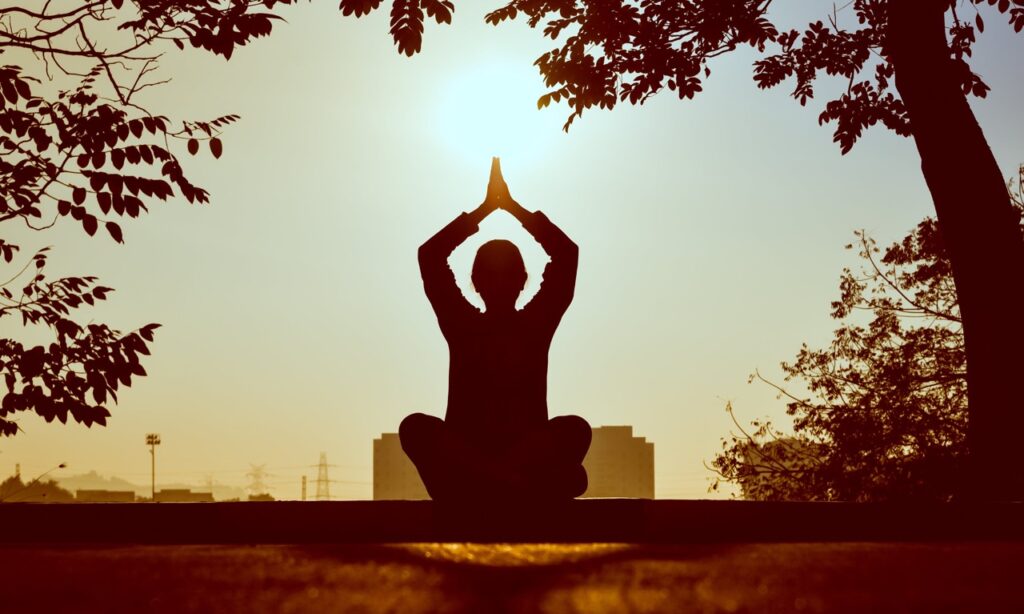Homeopathy
Can Meditation Be Dangerous
Is meditation dangerous? It’s a thought that may have entered your mind, particularly if you’re thinking about adopting meditation into your daily practice. Meditation has become extremely popular in recent years due to its ability to relieve stress, develop mindfulness, and improve general well-being. However, like with any technique, there may be worries regarding possible hazards or bad consequences.
In this article, we will discuss if meditation is dangerous and dispel any myths about the practice. We will look at scientific findings, professional perspectives, and personal experiences to give you a well-rounded view.
Understanding the Potential Risks of Meditation
Meditation is typically regarded as safe for the majority of individuals, but it is vital to recognize that it can be a dangerous practice. These hazards are frequently linked to pre-existing diseases or mental health concerns. Meditation, for example, may increase the symptoms of people who have experienced trauma, severe depression, or anxiety disorders.
It’s also worth noting that some people may experience a “dark night of the soul” while meditating. This word refers to a period of severe emotional and psychological distress that might occur as a result of meditation practice. While this experience can be difficult, it is frequently viewed as an opportunity for growth and self-discovery.
Meditation can also awaken repressed emotions or unpleasant experiences. This can be overwhelming for some people, so it’s crucial to handle these situations with caution and seek help if necessary. It is critical to be aware of these potential risks and approach meditation with self-care and mindfulness.

Debunking Common Misconceptions about Meditation Dangers
There are various myths about the potential of meditation to be dangerous that need to be dispelled. One prevalent myth is that meditation might cause psychosis or other mental health issues. However, no scientific data supports this assumption. In fact, studies have shown that meditation can improve mental health and even help lessen symptoms of anxiety and despair.
Another common misunderstanding is that meditation can result in physical harm, such as brain damage or altered states of consciousness. Again, no scientific data supports these statements. In reality, research has shown that meditation can improve brain structure and function, resulting in better cognitive ability and emotional management.
When it comes to the potential risks of meditation, it is critical to distinguish between fact and fantasy. While there may be concerns for some people, experts generally agree that meditation is a safe and useful activity when embraced with the proper mentality and direction.
The Importance of Proper Guidance and Instruction in Meditation
Receiving good direction and teaching is essential for assuring the safety of meditation practice. It is critical to acquire meditation techniques from qualified teachers who can offer advice and assistance throughout the process. This is especially true for novices, who may be more susceptible to potential hurdles or difficulties while meditation.
Qualified teachers can help students understand the potential hazards and advantages of meditation, provide individualized instruction based on individual needs, and assist in managing any problems that may emerge. They can also assist individuals in developing a balanced and sustained meditation practice by ensuring that they approach meditation with the appropriate mindset and expectations.
Potential Risks Associated with Certain Meditation Techniques
While meditation is generally regarded safe, some meditation techniques may pose greater hazards than others. For example, practices requiring great attention or breath control, such as Kundalini meditation or holotropic breathwork, may not be appropriate for everyone, particularly those with pre-existing physical illnesses or mental health issues.
It is critical to understand the distinct hazards connected with various meditation approaches and to select a practice that meets your unique needs and capabilities. If you have any questions or concerns regarding a certain method, it is always better to consult with a competent teacher or healthcare expert.

Precautions to Take Before Starting a Meditation Practice
Before beginning a meditation practice, take some steps to protect your safety and well-being. Here are some crucial precautions to take:
- Consult a healthcare provider: If you have any pre-existing physical ailments or mental health issues, you should speak with a healthcare expert before beginning your meditation practice. They can offer advice and help you determine whether meditation is right for you.
- Start gently and progressively: Begin with shorter meditation sessions and gradually expand the length as you feel more comfortable. Avoid pushing yourself too hard or expecting instant results, as this can lead to dissatisfaction and burnout.
- Self-care: In addition to your meditation practice, make time to care for your physical and mental health. Getting enough sleep, eating a balanced diet, and doing other self-care activities can all benefit your meditation practice and overall well-being.
- Listen to your body: Take note of any physical or emotional feelings that come during meditation. If anything doesn’t seem right, listen to your body and modify your practice accordingly. Pushing through discomfort or suffering can be more harmful than beneficial.
How to Approach Meditation Safely and Responsibly
Approaching meditation properly and responsibly is critical for reaping its benefits while limiting potential hazards. Here are some guidelines for approaching meditation with mindfulness and care:
- Find a qualified teacher: As previously said, choosing a qualified teacher who can offer direction and assistance is critical. They can assist you in navigating any problems that may emerge during meditation and ensuring that you are practicing safely and effectively.
- Set realistic expectations: Meditation should be approached with realistic expectations. Meditation is a discipline that takes time and patience, and the results may not be immediately obvious. Setting realistic goals and being patient with the process will help you maintain a positive and long-term meditation practice.
- Practice self-compassion: Meditation is a path of self-discovery and growth, therefore approach it with compassion. Be kind with yourself and refrain from judging or condemning your meditation experiences. Accept the practice as an opportunity for self-care and personal growth.
- Seek help when you need it: If you run into any issues when meditating, don’t be afraid to ask for help. This can take the form of speaking with a competent teacher, joining a meditation group, or getting advice from a mental health professional. Remember that there is no shame in asking for help when you need it.

Recognizing and Managing Potential Challenges During Meditation
While meditation can be a transformational discipline, it is not uncommon to face obstacles along the path. It is critical to acknowledge and address these difficulties in a healthy and helpful manner. Here are some frequent obstacles that people may confront during meditation, along with recommendations for dealing with them:
- Restlessness or agitation: If you have difficulty sitting still or quieting your thoughts during meditation, you are not alone. Restlessness and agitation are common issues that many people face. To address these issues, incorporate movement-based meditation activities into your regimen, such as walking meditation or yoga.
- Racing thoughts or mental distractions: During meditation, the mind naturally wanders, and racing thoughts or mental distractions can be frustrating. To overcome these obstacles, consider a focus-based meditation approach, such as mantra meditation or breath awareness, to help you anchor your attention and return to the present moment.
- Physical discomfort: Sitting in one position for an extended period of time can cause stiffness and soreness. To overcome these obstacles, experiment with different meditation postures or use props like cushions or chairs to support your body. It’s critical to select a posture that helps you to be comfortable and relaxed while meditation.
- Emotional intensity: As previously stated, meditation can occasionally bring repressed emotions or traumatic experiences to the surface. It is critical to face these situations with self-compassion and seek help as needed. Talking to a skilled teacher or mental health professional can help you negotiate these difficult emotional experiences in a safe and healthy way.
The Benefits of Meditation Outweighing the Risks
While there are some risks involved with meditation, the benefits greatly outweigh them for the vast majority of people. According to research, regular meditation practice can result in a variety of advantages, including reduced stress and anxiety, improved focus and concentration, improved emotional well-being, and increased self-awareness.
Meditation has also been shown to benefit physical health by lowering blood pressure, increasing immunological function, and alleviating symptoms of chronic pain. It can also help people develop a sense of inner calm and resilience, allowing them to deal with life’s hardships more easily.
By entering meditation with a balanced mentality, receiving appropriate assistance, and being aware of potential hazards, you may embrace it as a safe and transformative practice with the ability to improve your entire well-being.
Conclusion
In conclusion, the question of whether meditation is dangerous is often surrounded by misconceptions and misunderstandings. While there may be potential risks associated with meditation, these risks are often related to certain pre-existing conditions or mental health issues.
By understanding the potential risks, seeking proper guidance, and approaching meditation with mindfulness and care, I can embrace meditation as a safe and transformative practice that has the potential to improve my physical, mental, and emotional well-being.
Remember, meditation is a personal journey, and what works for one person may not work for another. It’s important to find a meditation practice that resonates with me and supports my individual needs and goals. With the right mindset and guidance, meditation can become a valuable tool for self-care, personal growth, and overall well-being.
So, the next time I find myself wondering, “Is meditation dangerous?” I’ll remember that the answer lies in understanding the potential risks, seeking proper guidance, and approaching the practice with mindfulness and care.


